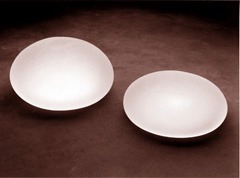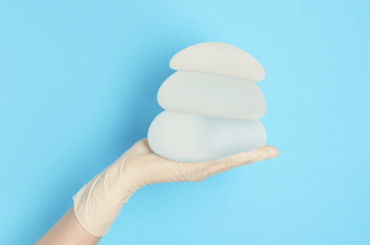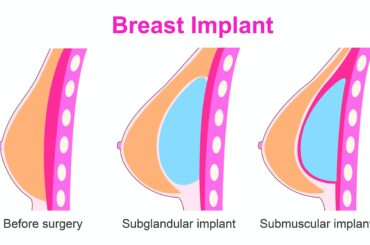The cost of breast implant surgery cannot be determined by the financial impact alone; aside from the exorbitant costs that surgery entails, there are also many potential health issues that can result from getting implants. In the end, you may experience disadvantages that outweigh the benefits of bigger breasts.
No matter how eager you may be for implants, these are possibilities that women should not discount. Money may be dispensable for some women, but health is a form of wealth that can’t be easily replenished. Given the options available today, it is better to consider the non-monetary expenses you may be facing prior to undergoing a breast implant operation.
The Financial Cost
 Breast implants cost an average of $3,700 for silicone implants, while saline implants averaged more than $3,300 in 2011. However, these prices do not include the costs for the surgeon, the anesthesia, and the special bra that you must wear after the surgery. Although cheap implants may be appealing because of their reduced prices, choosing cheap implants may mean that the operation poses more risks than usual. Nevertheless, high prices do not necessarily mean that you’ll be getting good results, since the success of the whole process is still entirely dependent on the surgeon’s expertise.
Breast implants cost an average of $3,700 for silicone implants, while saline implants averaged more than $3,300 in 2011. However, these prices do not include the costs for the surgeon, the anesthesia, and the special bra that you must wear after the surgery. Although cheap implants may be appealing because of their reduced prices, choosing cheap implants may mean that the operation poses more risks than usual. Nevertheless, high prices do not necessarily mean that you’ll be getting good results, since the success of the whole process is still entirely dependent on the surgeon’s expertise.
Since breast implants typically do not last a lifetime, you’ll need to check occasionally to verify that everything is still in place and nothing has ruptured. To determine this, you’ll need to undergo MRI scans, which can cost anywhere from $400 to $2000. While MRIs are typically covered in part by health insurance, breast implants are considered to be ‘cosmetic surgery’ and follow-up MRIs are typically not covered. Additional surgeries may also be needed to replace your implants, since both silicone and saline have an expiration date. An implant replacement surgery is just as expensive as the initial surgery, which catches many women off guard.
Health Risks and Other Costs
After surgery, there is normally a 24 to 48 hour recovery period in which you cannot do anything. You will be advised to reduce your physical activity in the following weeks in order to allow the incisions to fully heal, as well as to make sure that your implants settle into the proper position. Certain normal daily activities such as household chores or using the computer can be resumed after at least a week. This could mean that you’ll lose a week’s salary in addition to the cost of the operation.
Women who have submuscular breast implants (implants inserted behind the pectoral muscle) may require greater time for recuperation. Additionally, there will be some swelling for a couple of weeks, but over time this will decrease as the incisions heal. Other health risks also include nausea, vomiting, bleeding, pain and infection. Some women experience difficulties breast feeding, numbing or loss of sensation, wrinkling of the skin, thinning of breast tissue and asymmetry. In addition, some women may hear buzzing, crackling or gurgling sounds coming from their breasts as the implants are settling. Learn more.
Alternative Course of Action
The best way to avoid complications and major expense is to consider your alternatives. Surgery is an expensive process that can affect many other parts of your life. It is highly recommended that you think things through first and determine other available options before scheduling a consultation. One option that every woman has is natural breast enhancement supplements. Aside from being less expensive, supplements are far less risky than surgery.
We’ve made your life easier by testing and reviewing the top natural breast enhancement products for you. See the results of our tests here.





